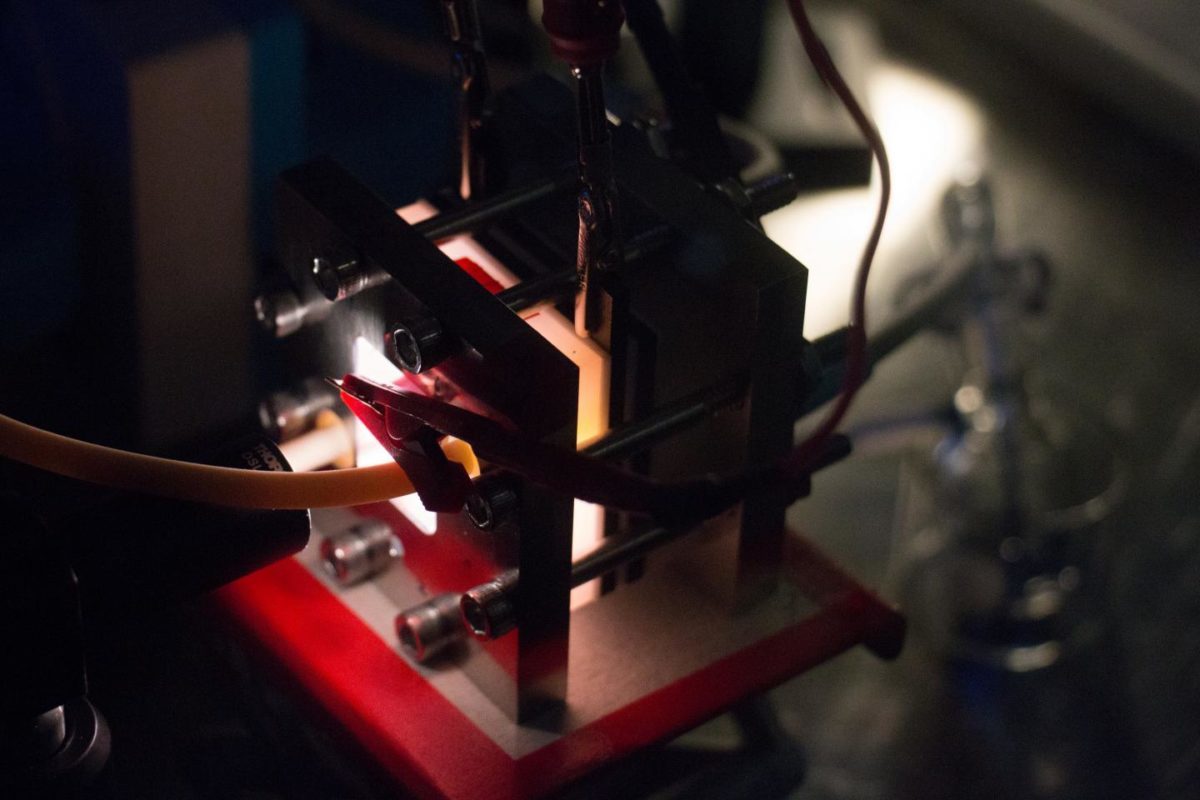From pv magazine Global
Saudi Arabia’s King Abdullah University of Science and Technology (KAUST) and the U.S. University of Wisconsin-Madison have joined forces to create what they call a “solar flow battery” designed to act as both a solar cell and a storage system.
The research group, created by the two entities, said its new device can act in three different ways: (i) like a standard solar cell, which produces electricity from solar radiation; (ii) to absorb solar energy during daylight hours and store it as chemical energy to deliver later as electricity, when night falls or the sky grows cloudy; and (iii) just a storage device, which can be charged by electrical energy if needed.
“Compared with separated solar energy conversion and electrochemical energy storage devices, combining the functions of separated devices into a single, integrated device could be a more efficient, scalable, compact, and cost-effective approach to utilizing solar energy,” the research group said in a statement released.
The scientists said that these kinds of devices may become particularly suitable in the future for off-grid solar applications in remote locations. They admitted that the device in its current configuration is too expensive for commercial and mass production. However, they do believe with further design improvements, the use of so-called “emerging solar materials”, and new electrochemistry, the device may eventually reach efficiencies of up to 25%.
In their research, they presented the design principles for, and the demonstration of, a highly efficient integrated solar flow battery (SFB) device, with a record solar-to-output electricity efficiency of 14.1%.
“Some of the current device’s voltage is still going to waste – meaning the scientists may need to tweak the redox species and photoelectrode materials that work in tandem to convert solar energy input into electrical output,” the researchers asserted.
In September, scientists at Germany‘s Friedrich-Alexander-Universität Erlangen-Nürnberg (FAU) also revealed plans to develop an energy-storing solar cell through two different research projects.
By Emiliano Bellini
This content is protected by copyright and may not be reused. If you want to cooperate with us and would like to reuse some of our content, please contact: editors@pv-magazine.com.








By submitting this form you agree to pv magazine using your data for the purposes of publishing your comment.
Your personal data will only be disclosed or otherwise transmitted to third parties for the purposes of spam filtering or if this is necessary for technical maintenance of the website. Any other transfer to third parties will not take place unless this is justified on the basis of applicable data protection regulations or if pv magazine is legally obliged to do so.
You may revoke this consent at any time with effect for the future, in which case your personal data will be deleted immediately. Otherwise, your data will be deleted if pv magazine has processed your request or the purpose of data storage is fulfilled.
Further information on data privacy can be found in our Data Protection Policy.